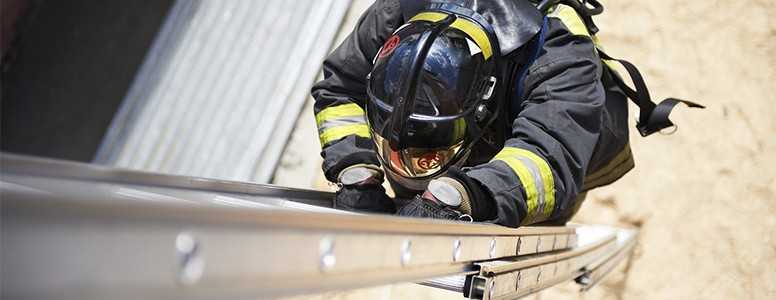A new report collating figures from 50 fire services in the UK reveals that rescuing obese people trapped in homes is a recurrent issue for firefighters today.
The findings highlight that obesity can compromise quality of life for patients in serious ways, in addition to being a major risk factor for the development of type 2 diabetes.
The data, obtained by BBC Radio 5, shows that there were 944 incidents where obese people needed to be moved by rescue services in 2015/16.
This has increased by a third compared to 709 interventions in 2012/13. The same year, a new category was created for the fire and rescue services to report “bariatric rescues”.
When responding to this type of call, rescuers often have to use lifting equipment such as special slings and sometimes have to remove windows, walls and banisters in the victims’ homes.
Typical scenarios which rescuers that were interviewed were involved with included helping the ambulance services with lifting equipment to remove an overweight patient stuck in furniture and carrying a 40-stone man from the upstairs of a pub.
Many incidents also consisted of moving obese people who had died from their homes for an undertaker’s ambulance to take over.
Of the 50 UK services polled, South Wales Fire and Rescue Service had the highest number of incidents (77) in 2015/16 followed by West Wales Fire and Rescue Service (46).
Other fire brigades that have seen an increase in such rescues over that time period are Humberside Fire and Rescue Service (45), London Fire Brigade (38), and Lincolnshire Fire and Rescue Service (37).
Reacting to these figures, Tam Fry from the charity, the National Obesity Forum, told BBC Radio 5 that they were on the increase because obese patients were getting bigger.
“This is not about more people being obese. This is about those who are already obese now getting to a size where they now need assistance,” Fry said.
Dr David Kerriga, one of the UK’s leading bariatric surgeons, believes that many of these people don’t leave their homes as they feel less confident about engaging with the outside world.
“Patients who become that big are prisoners, not just within their own body but within their own homen,” Kerrigan explained.
This not only represents an immediate threat to their health, it also makes some of the rescues very complicated for firefighters.
The figures show that the UK is currently struggling to provide the right treatment and support to prevent people from growing super-obese and housebound, and the nation will need to address this.




